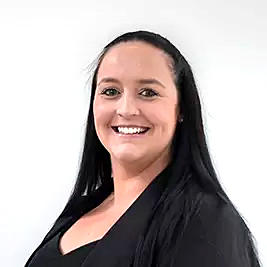The state of first home ownership in 2022

If you, or someone you know, is saving for a first home, then you’ll know just how challenging it can be.
Housing affordability is on the decline, and the rising cost of living makes it hard for many Australians to get by — let alone save for a house. But there are few buyers who feel the brunt of property prices quite as much as those saving for their first home.
According to the new Domain First Home Buyer Report, it now takes an average of five years and eight months to save for an entry-level property in one of Australia’s capital cities. What’s even more shocking is that this figure is 11 months longer than it took one year ago in March 2021.
Domain’s report explored how long it takes for a couple between the ages of 25-34 to save a 20% deposit for an entry-level property across Australia. We explore the key takeaways from the report below, as well as the areas and types of properties that are giving first-time buyers the best shot at owning their own home.
Property prices continue to grow, and wage growth isn’t keeping up
Over the past ten years, house prices across the combined capital cities have more than doubled, growing by 101%. Units, although slower in growth, also saw a massive 52% increase in prices.
This astronomical increase in property prices is one that wage growth cannot keep up with. The report found that over the past two decades, the average annual growth in capital city dwellings was 6.9% and 7.1% in regional areas. Meanwhile, the average annual wage growth was just half that at 3%.
Saving for a deposit takes longer on average
Domain’s report also revealed that most Aussies will be saving for roughly half a decade simply to be able to afford the 20% deposit for their first home.
It now takes an average of 4 years and 5 months for a couple aged 25-34 to save for an entry-level house across the country. In capital cities, the duration jumps to 5 years and 8 months, while in regional areas it takes 3 years and 10 months. Compared to five years ago today, the average time it takes to save has increased by 19 months for houses.
Unsurprisingly, Sydney is the most challenging place to save a deposit for a house, with the average couple taking 8 years and 1 month to save a 20% deposit. Canberra had the second-longest time to save, with couples needing to save for 7 years and 1 month to have enough for a deposit.
By comparison, entry-level units are far more accessible for first home buyers. It takes a couple aged 25-34 an average of 3 years and 9 months to save enough for a deposit across all capital cities and regional areas. In Australia’s combined capital, it takes 3 years and 6 months while in the combined regional areas it’s even faster, with the average couple saving for just 3 years. However, this figure varies dramatically between cities: in Sydney, for example, it takes 5 years and 6 months to save a 20% deposit, while in Perth it takes just 2 years and 6 months.
Mortgage serviceability has remained stable
Although first home buyers may have a challenging time getting onto the property ladder, it’s not all doom and gloom. Domain’s report shows that once buyers do purchase a property, mortgage serviceability is still respectable thanks to low interest rates.
As a general rule of thumb, it’s recommended that homeowners dedicate less than 30% of their income towards mortgage repayments. On average, mortgage repayments are below this threshold in capital cities: the percentage of income required to service a mortgage is 27.1% for entry-level houses and 18.4% for entry-level units. In regional Australia, the figures are even lower with the percentages at 16.7% for entry-level houses and 13.5% for units.
Saving up for your first home?
Make your money go further with the sharpest home loan rate. Rateseeker’s experienced brokers access competitive rates from over 30+ lenders to find you the best home loan for your personal and financial needs. Request your obligation-free consultation today.
** General Advice Warning
The information provided on this website is general in nature only and it does not take into account your personal needs or circumstances into consideration. Before acting on any advice, you should consider whether the information is appropriate to your needs and where appropriate, seek professional advice in relation to legal, financial, taxation, mortgage or other advice.




